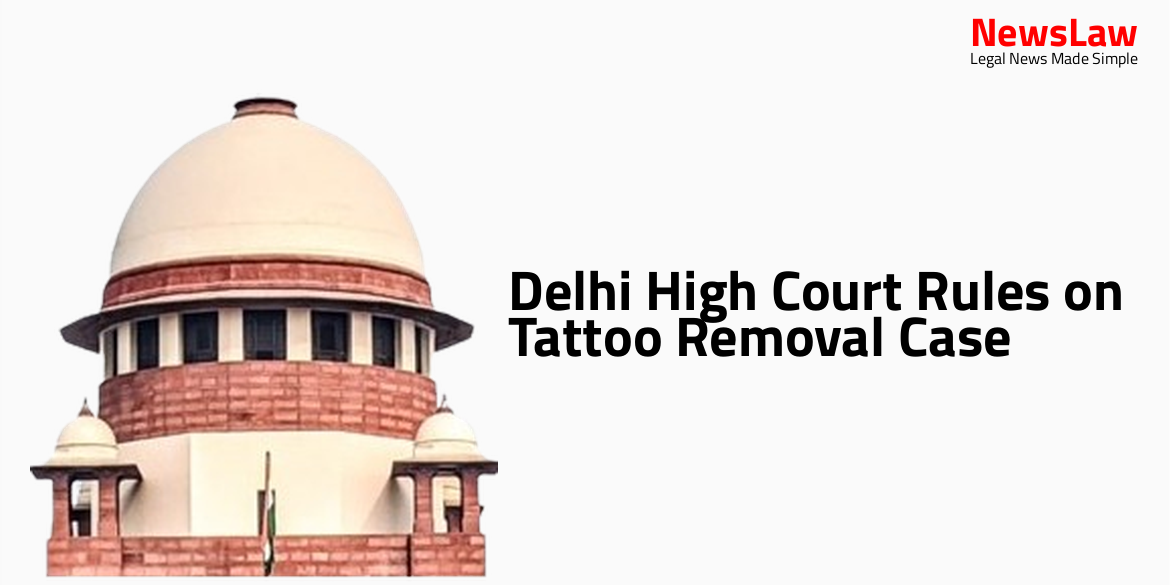Delve into the complexities of the court’s legal analysis on the regularization of part-time employees in a recent case. The judgment sheds light on the jurisdiction of the High Court, the role of government policies, and the criteria for regularization of temporary workers. Let’s unravel the legal intricacies together.
Facts
- The authorities rejected the claim due to lack of sanctioned posts and insufficient years of service.
- The High Court directed the authorities to re-visit the issue and formulate a policy for sanctioning posts within a specified time frame.
- Part-time employees with over 20 years of service were granted ‘minimum’ basic pay of Group ‘D’ posts until the re-evaluation is completed.
- Contempt proceedings were initiated for failure to formulate a regularization scheme as per previous court orders.
- A policy for the regularization of casual laborers was framed in line with court decisions and DoPT guidelines.
- Union of India appealed against the High Court’s directions to revisit the regularization policy and sanction posts gradually.
- The Tribunal suggested age relaxation for long-serving employees and emphasized the need for a one-time regularization scheme.
- The High Court intervened in the case of part-time employees serving in Post Offices due to lack of sanctioned posts and directed the Secretary to present the regularization scheme.
- The Tribunal mandated the appointment of regular Safaiwalas through proper selection within a specified timeframe.
- The Supreme Court declined to interfere with the High Court’s direction to grant minimum basic pay to eligible employees with over 20 years of part-time service.
- Respondents filed a statement stating they are contingent paid Safaiwalas working for less than five hours in a Post Office at Sector-14, Chandigarh.
- They approached the Central Administrative Tribunal seeking directions for regularization/absorption policy for their service.
- The department opposed the said O.A.
- Respondents were seeking temporary status since 1989, despite no regular sanctioned post of Safaiwala in that particular Post Office in Chandigarh.
- An O.M. dated 11.12.2006 was issued by the Ministry of Personnel, providing context.
Also Read: Legal Analysis on Conviction Based on Sole Testimony of Prosecutrix
Arguments
- The O.M. dated 11.12.2006 and subsequent regularization policy dated 30.06.2014 are not applicable to the case at hand.
- Judicial review cannot direct the government to review policy of appointment.
- High Court’s direction to sanction posts can be seen as a policy decision beyond its jurisdiction under Article 226.
- No sanctioned posts in the Post Office where respondents worked as part-time Safaiwalas, so their services cannot be regularized.
- High Court’s directive to create and sanction posts exceeds its jurisdiction.
- High Court did not consider the Recruitment Rules properly, which were not applicable to the Postal Department.
- High Court misinterpreted facts regarding the respondents’ part-time status without evidence.
- Services can only be regularized as a one-time measure for irregularly appointed employees meeting necessary qualifications and tenure criteria.
- The Union of India has accepted the verdict of the court in seven out of nine writ petitions as they were not challenged.
- The scope of the present case is limited to the directions mentioned in paragraph 22 of the impugned judgment, as indicated by the Court while issuing notice.
- The respondents in the present case, Ilmo Devi and Babli, have already served for many years as sweepers and are close to retirement age.
- The High Court’s judgment addressed a total of nine petitions, with only two being challenged in the current appeals.
- The respondent’s counsel opposes the appeals, suggesting that the Court should not interfere with the High Court’s decision and dismiss the appeals while keeping the legal question open.
Also Read: Legal Analysis on Concurrent Sentences in Drug Trafficking Cases
Analysis
- High Court cannot direct the Government to formulate a specific regularization policy.
- The regularization policy dated 30.06.2014 does not apply to part-time workers who do not work on sanctioned posts.
- The creation and sanctioning of posts is the prerogative of the Government, not the High Court.
- The High Court cannot issue a Mandamus to direct the creation of posts.
- The respondents were contingent paid part-time employees working as Safai Karamcharies.
- The regularization policy for temporary/casual laborers is a policy decision and not a matter of judicial review.
- The High Court’s directions in the judgment are not permissible under Article 226.
- The respondents were not entitled to regularization under the policy dated 30.06.2014.
- The respondents worked for more than 10 to 20 years but were part-time employees.
- The observation that the respondents worked continuously and for the whole day lacks supporting evidence.
- Temporary contractual, casual, or daily wage workers do not have a legal right to be made permanent unless they fulfill certain criteria.
- Casual Labourers engaged without following due process or rules relating to appointment and not meeting specific criteria will not be considered for absorption, regularization, or permanency in the Department.
- Casual Labourers irregularly appointed but duly qualified in terms of statutory requirements and engaged against a sanctioned post will be considered for regularization if they have worked for 10 years or more, subject to certain conditions and not under the covers of court or tribunal orders.
- Regularisation, absorption, or permanent continuance cannot be directed for part-time temporary employees in government-run institutions.
- Under the principle of equal pay for equal work, part-time temporary employees cannot claim parity in salary with regular government employees.
- The status of permanency cannot be granted to part-time temporary employees if there is no post available for regularization.
- Mere continuation of seasonal work does not constitute a permanent status unless there exists a post for regularization.
- Courts should not issue directions for regularisation unless the employees were appointed through a regular recruitment process against sanctioned vacant posts and in accordance with relevant rules.
- Temporary or daily-wage employees cannot claim absorption into service based on continuation under interim court orders.
- Even if a scheme is formulated for regularisation with a cut-off date, it cannot be extended to employees appointed after the cut-off date.
- Part-time employees are not entitled to seek regularisation as they are not working against any sanctioned posts.
- The right to claim a particular salary against the State must arise from a contract or statute.
- Illegal engagements of casual laborers will not be regularized, especially if they do not meet specified criteria or violate constitutional provisions.
- Both appeals succeed.
- The directions issued in paragraph 23 of the impugned judgment are quashed and set aside, but this does not affect the entitlement of the respondents to the reliefs mentioned in paragraph 23.
- The direction in paragraph 23 granting minimum basic pay to Group ‘D’ posts with 20 years of part-time daily wage service is considered unsustainable.
- The Court is not quashing the directions in paragraph 23 for the respondents’ employees based on an order dated 22.07.2016.
Also Read: Legal Jurisdiction and Award Finality in Arbitration Dispute
Decision
- Both appeals were allowed.
- No order was given regarding costs.
- The impugned judgment and order by the High Court were quashed and set aside.
- The directions in paragraphs 22 and 23 of the impugned judgment were also quashed.
Case Title: UNION OF INDIA Vs. ILMO DEVI . (2021 INSC 634)
Case Number: C.A. No.-005689-005690 / 2021



